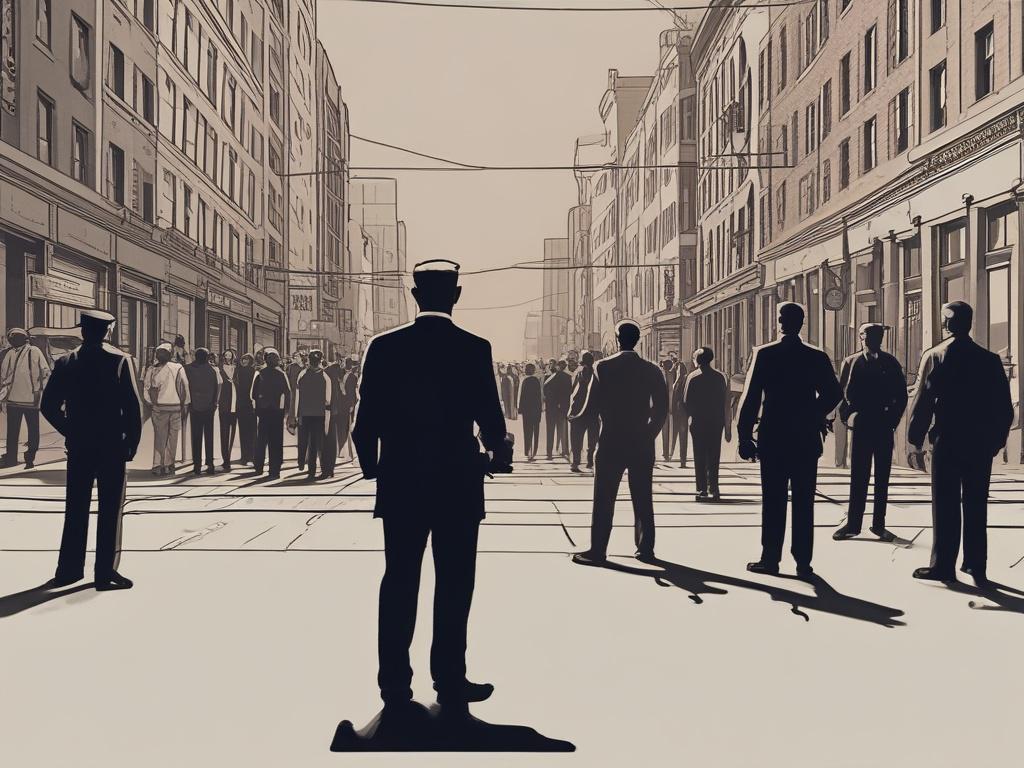
In an age where information flows freely and transparency is prized, covert operations hidden within our communities pose significant risks to both individual rights and collective safety. These clandestine activities can take many forms, often conducted in secrecy and without the consent or knowledge of the very citizens they affect. By understanding the hidden dangers of covert operations, we can better advocate for our rights and ensure our neighborhoods remain safe and secure.
As we delve into this topic, it is crucial to recognize how these covert actions can undermine the fundamental liberties that define our society. From surveillance practices that infringe on privacy to operations that manipulate public perception, the implications are far-reaching. This blog post will explore the realities of these operations, equip you with essential knowledge about your rights, and empower you to take a stand against threats lurking in the shadows of your community. Join us as we uncover the truths about covert operations and how you can help protect both your rights and the safety of those around you.
The hidden dangers of covert operations and their impact on community safety
Covert operations often operate in the shadows, evading public scrutiny while posing serious risks to community safety. These clandestine activities, which could involve surveillance, infiltration, or undercover work, might be intended to prevent crime or apprehend criminals. However, the methods employed can lead to unforeseen consequences that compromise the very safety they aim to enhance. When law enforcement or government agencies bypass transparency, they increase the chance of misidentifying community members as suspects, which may result in wrongful accusations, unwarranted fear, and a growing distrust among residents.
Furthermore, the lack of accountability in covert operations can create a culture of fear within communities. When residents suspect that they are being watched or monitored without their consent, it can stifle free expression and discourage open dialogue about pressing social issues. Moreover, such operations can disproportionately target marginalized groups, deepening existing societal divides and fostering an environment of suspicion. As communities strive for safety and well-being, it is crucial to recognize the hidden dangers of covert operations and to question whether the ends truly justify the means. By understanding these threats, residents can start to advocate for a more transparent approach to maintaining safety within their neighborhoods.
How covert operations undermine your rights: What you need to know
Covert operations often occur without public knowledge, creating a shadowy realm where individual rights can be easily violated. These clandestine activities can infringe upon your privacy, freedom of speech, and due process. For instance, surveillance conducted without warrants can lead to the unauthorized collection of personal information, clouding the line between legitimate security measures and intrusive spying. As citizens, when we are unaware of such operations, we unknowingly surrender our rights, allowing a culture of fear and compliance to take root.
Moreover, covert operations can create an environment rife with distrust within communities. When law enforcement or government agencies conduct secretive activities, it can lead to a breakdown in trust between these entities and the public they serve. People may feel isolated and unsafe, unsure of the extent to which they are being monitored or manipulated. This erosion of confidence can deter community members from participating in local governance and civic engagement, further weakening the very foundations of democracy. Recognizing how these covert actions impact your rights is vital for empowering yourself and others to advocate for transparency and accountability in your community.
Taking a stand: Protecting your community from covert threats
Engaging with your community is vital in combating the hidden dangers posed by covert operations. Start by raising awareness among your neighbors about the implications of these activities. Host community meetings to discuss how covert operations can undermine your local safety and civil liberties. Encourage open dialogue and invite local experts or legal advisors to speak on the topic, empowering residents with the information they need to recognize potential threats. The more informed your community becomes, the stronger it can stand against the misuse of covert tactics that infringe upon individual rights.
Additionally, collaboration with local organizations and advocacy groups can bolster your efforts in protecting community safety. Form coalitions that focus on transparency and vigilance concerning law enforcement practices. Work together to propose policies that require oversight and accountability of covert operations within your jurisdiction. Utilize social media platforms to spread awareness about the importance of safeguarding your neighborhood from secretive tactics that may endanger your rights. By uniting as a community, you create a powerful voice that demands responsible action and respect for civil liberties.
Stay updated on our news and events! Sign up to receive our newsletter.
Thank you for signing up!
Something went wrong. Please try again later.